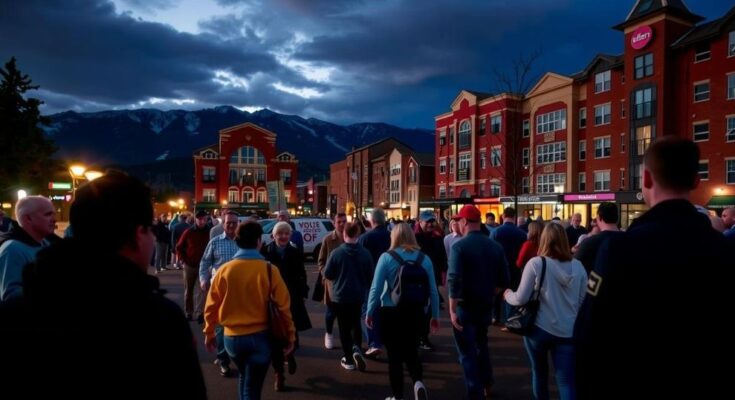A recent poll indicates that a majority of Colorado voters feel optimistic ahead of Election Day, with 77% believing residents share more commonalities than divisions. Health care costs, illegal immigration, and affordable housing emerged as top legislative priorities. Governor Jared Polis maintains a favorable rating, but many voters—especially unaffiliated ones—report feeling disconnected from both major political parties.
As Election Day approached on November 5, a substantial number of Colorado voters exhibited a sense of optimism, as revealed by a poll conducted by the Colorado Polling Institute. This survey, which engaged 822 voters from October 25 to November 4, was carried out through telephone interviews and online responses, yielding a margin of error of 3.42%. Among the key findings, 77% of respondents expressed the view that residents in Colorado share more commonalities than divisions, a sentiment echoed by Kevin Ingham, principal of Aspect Strategic, who noted the underlying shared values despite differing opinions on various issues.
Additionally, approximately 50% of respondents conveyed that they believe Colorado is on the right path, marking a slight increase from earlier polling in March. However, those who have resided in the state for over 20 years appeared less optimistic, with nearly half perceiving the state’s direction as flawed. Furthermore, support for President-elect Donald Trump among Republican voters seemed to overshadow traditional party affiliations, indicating a notable shift in sentiment.
The poll also underscored the priorities of the electorate, with health care costs emerging as the foremost concern, as cited by 48% of participants. Illegal immigration and affordable housing followed closely, with 47% and 46% of respondents, respectively, choosing these issues as paramount. Notably, over 90% of individuals acknowledged the direct or indirect impact of state legislative laws on their daily lives. Governor Jared Polis received favorable ratings from 54% of those polled, while sentiment towards the Democratic and Republican parties revealed that many voters feel the parties are disconnected from grassroots concerns.
The growing segment of unaffiliated voters highlighted a significant aspect of the poll, with approximately one-third feeling that both major parties do not adequately represent their interests. Additionally, 70% of these individuals reported challenges in accessing unbiased political information, highlighting an important area for potential improvement in voter engagement and information dissemination.
The context of this poll involves the broader political landscape in Colorado, characterized by a diverse electorate with varying political affiliations and perspectives. As Election Day drew near, understanding the sentiment of voters became critical in gauging future political trends and issues that resonate with the populace. The findings reflect not only a snapshot of current voter opinions but also shed light on broader themes related to party loyalty, priorities in governance, and the growing presence of unaffiliated voters in the state.
In summation, the poll reflects a generally optimistic outlook among Colorado voters concerning the state’s future, alongside significant priorities such as health care, immigration, and housing. The sentiments expressed reveal disparities based on political affiliation and tenure in the state, suggesting a need for greater alignment between voters’ concerns and the platforms of major political parties. The engagement of unaffiliated voters further indicates a shifting political demographic that could shape future elections in Colorado.
Original Source: www.vaildaily.com




